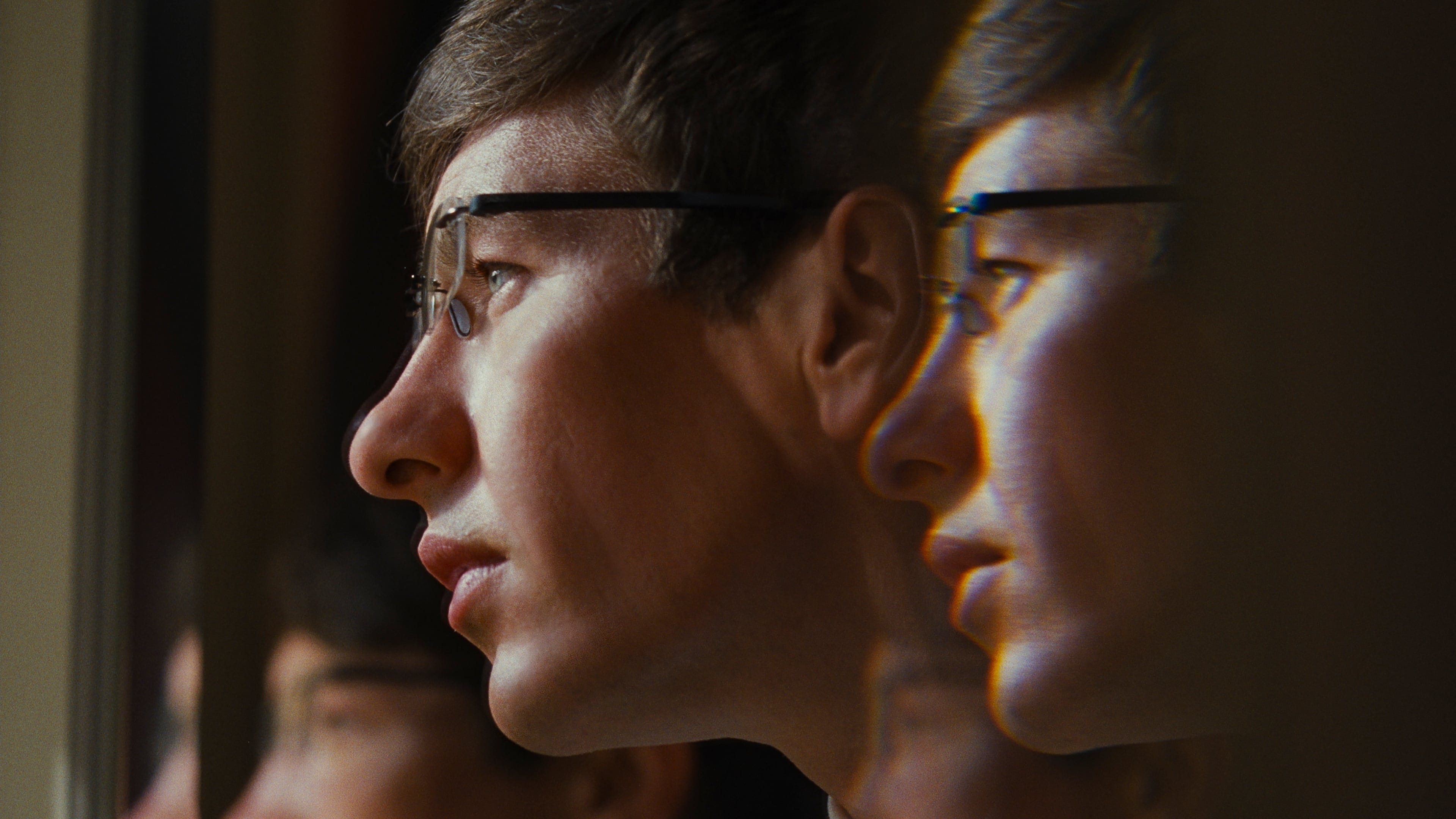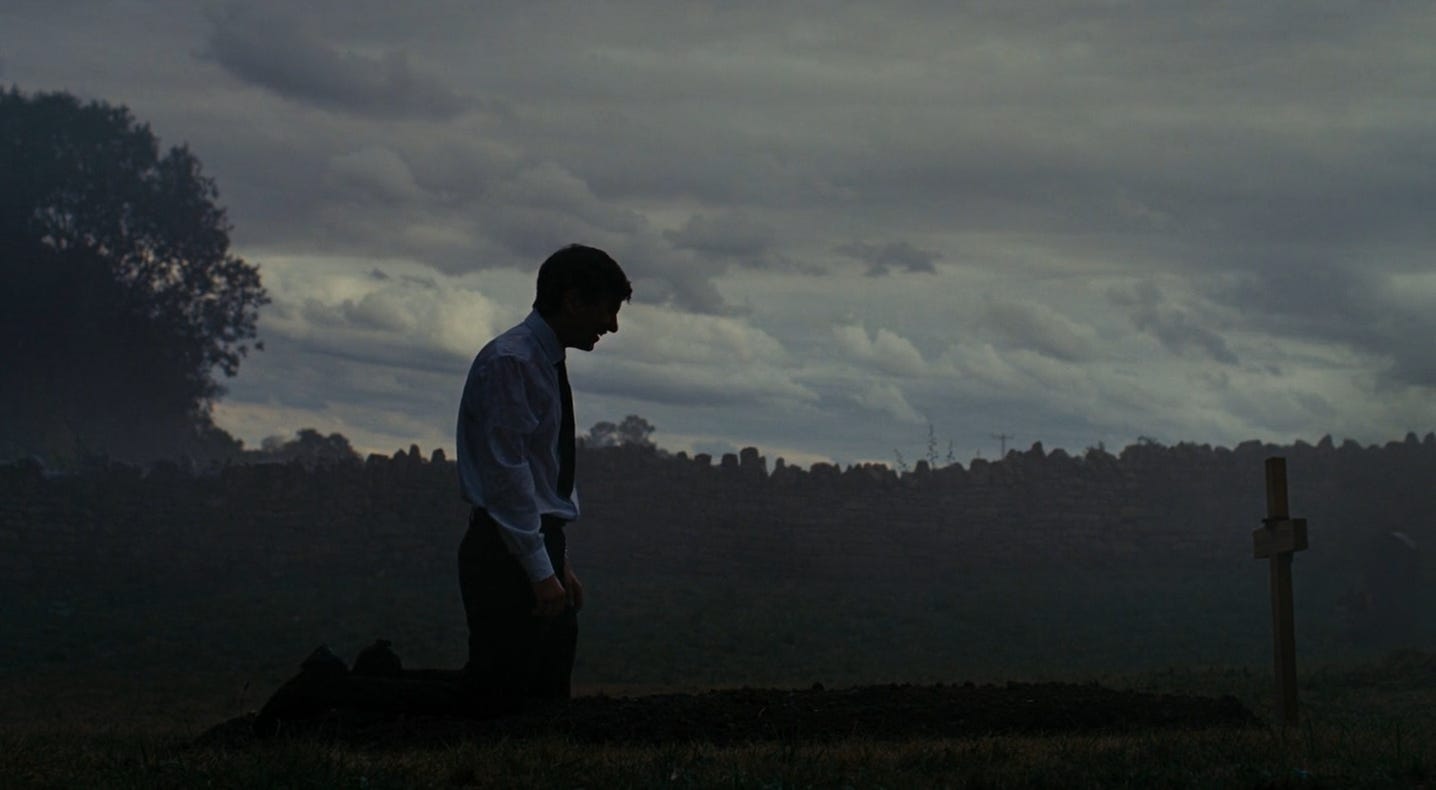The diabolical exploitation of the Menéndez brothers.
Lyle Menéndez (left) and Erik Menéndez (right) during their highly publicised trial. / Associated Press
‘Violence is never an answer, never a solution, and is always tragic. As such, I hope it is never forgotten that violence against a child creates a hundred horrendous and silent crime scenes darkly shadowed behind glitter and glamour and rarely exposed until tragedy penetrates everyone involved.’ — Erik Menéndez in response to Monsters
If you are not familiar with the Menéndez brothers, I simultaneously feel very sorry for and very envious of you. The 1989 murder case of wealthy entertainment tycoon Jose Menéndez and his wife Kitty, fatally shot in the den of their Beverly Hills mansion, may predate bite-sized TikTok rundowns, long-winded docuseries and ‘white woman true crime podcasts’. But by no means could the trial of the brothers responsible be described as anything other than a media circus—one that dominated the televisions and tabloids of the early nineties and turned suffering into spectacle, their tragedy into tableau. Nearly thirty-five years have passed, though the echoes of that anguish refuse to fade.
The public’s fetish for this case — and discourse surrounding the brothers’ defence that they were sexually abused by their father — are once again brought into controversial conversation with Ryan Murphy’s newest instalment of Monsters. This is not the place for learning about the idiosyncrasies of the Menéndez brothers’ crime; this is a place solely dedicated to the scrutinisation of the heinous and invented story Ryan Murphy so bumptiously tells. It is a place for examining the wounds he has reopened and unpacking why this spurious and irresponsible distortion of the truth matters. In August of 1989, Lyle and Erik Menéndez, twenty-one and eighteen respectively, shot and killed their father and mother. It is crucial before watching and digesting the fiction of this programme you understand why. In 2005, Erik Menéndez would tell People magazine: ‘It’s as if there was kerosene all over the floor that a match could light at any time. And my soul was burnt to death. The way I reacted was so destructive to all. It was the most awful devastation.’
Cooper Koch (left) as Erik Menéndez and Nicholas Alexander Chavez (right) as Lyle Menéndez. / Netflix
I’ll come clean and admit to being borderline ecstatic when I heard there was a new series about the Menéndez brothers coming out. It’s a case that sits very close to my heart, and affects me to a degree no fictional tragedy could ever hope to inspire. But I was less so after seeing it was produced by Netflix, even less upon learning it would be spearheaded by Ryan Murphy and the next instalment in his ‘true crime’ franchise. Monsters: The Lyle and Erik Menéndez Story. Shuddersome. I understand the title is meant to be ambiguous, a possible subversion of itself depending on what side of the fence you happen to sit on. The implication is still there; it’s still not right to even suggest these two men could stand on the same level as Jeffrey Dahmer.
And this is where the cruel exploitation of Lyle and Erik Menéndez begins. Murphy takes off running from here and never seems to stop. There are a great many issues I take with this series, but I do believe its mindful and mannerly to mention the brilliant acting by breakout stars Cooper Koch and Nicholas Alexander Chavez, poignant score by Thomas Newman paired with a captivating soundtrack that has reintroduced an entire generation to Milli Vanilli, and outstanding cinematics achieved by a talented team. It is a well-crafted and engrossing show; I will not shy away from admitting to that. Any fond remarks I may have about this series now come to an abrupt halt.
Erik Menéndez takes the stand in 1993. / CourtTV
I boast no behavioural psychology qualification save the common high school course. Nor do I intend to imply that having an interest in true crime—no matter how intense—grants me any authority to make sound claims about the truth of this trauma. Still, I find it impossible not to mention the presence and manner of the Menéndez brothers in court; how their disposition and the details of their demeanour during their testimonies add nuance and colour to the words that come stuttering, hesitant and embarrassed, from behind their teeth. Though the pain and trauma these two men suffered throughout their childhoods is, I do believe it’s fair to say, nearly their entire defence case, there is an astonishing and noticeable lack of self-pity in their statements. The physical and sexual torture they were subjected to is presented to the jury by the defendants with the same straightforward candour a twelve-year-old boy may explain his process of long-division to a tutor. Step-by-step. ‘That’s just the way it goes, see?’ When there are tears, put them under a microscope. You will find no ‘poor me’s, no crocodile victimhood, only their wretched, childlike frustration at not being able to spit out the words they need to say. ‘My dad…my dad…my dad…’ is how Erik Menéndez begins when questioned by his defence attorney Leslie Abramson: ‘What do you believe was the originating cause of you and your brother … shooting your parents?’ It takes him minutes of frustrated brow-furrowing, aborted sentences, hard stares at his lap while he tries to get his tears and his breathing under control. There are shaky sighs and sharp exhalations blown into the microphone—too close, the pops filling the courtroom. He pulls his mouth, desperate to school his expression. This lasts for fifty-five excruciating seconds. ‘It was you telling Lyle what?’ Abramson prompts. He looks physically ill as he finally forces out the full sentence: ‘That my dad had been molesting me.’ The mic captures a sharp inhale as the defendant’s face twists in embarrassed agony. There is no vaunting present. This is not something spoken lightly, with an air of ‘Look, see?’ Erik Menéndez chokes these words out, his voice saturated with defeat and shame. To be eighteen, feeling smaller than nothing as you tell this to your big brother. To be twenty-three, even smaller as you admit this to a courtroom full of strangers, a camera crew, the whole world. Can you imagine?
Lyle Menéndez at trial. / Getty Images
This older brother Erik Menéndez confides in is hardly present in Murphy’s rendering. There are crucial facets of Lyle Menéndez’s personality he miserably fails to show. Take, for instance, his considerable emotional connection to soft toys. Lyle considered them family: ‘They made me feel safer,’ he would go on to testify, ‘Especially early on, but really all the way through my teenage years, sometimes they got me through the day.’ He took them to high school. When Erik would orphan his stuffed animals, having grown out of them, Lyle would take them in. He would impose different traits, roles, temperaments onto them, crafting highly complex hierarchies and social orders. Dr. Jon Conte, a psychologist specialising in child abuse and who worked with Lyle Menéndez during his time in jail, would remark of this behaviour: ‘In a way that I’ve never heard from another victim, he … was doing play therapy. When we see traumatised kids, we often ask them to act out with [toys] their bad experiences. The difference between Lyle’s [playing] and play therapy is that there was no therapist there to help guide the process.’ It is difficult to reconcile this Lyle Menéndez with Murphy’s brash, Janus-faced caricature, prone to violent threats and bratty outbursts.
Emerging talent Nicholas Alexander Chavez as Lyle Menéndez. / Netflix
Chavez’s disarming and ill-tempered Lyle swears at ticket agents, frightens children on Halloween, punctuates his immature shouting with wild gestures, banging on tables and slamming doors. Murphy even goes so far as to imply this awful imitation of Lyle is capable of deceiving the ‘audience’ of the jury, of putting on a performance of pain and misery so as to elicit profound, falsely-rooted sympathy. It is vile. Today, Erik Menéndez continues to fight on behalf of his brother, still defends him. In direct response to Murphy’s loud, violent, near bipolar portrayal of Lyle, he had this to say:
‘I believed we had moved beyond the lies and ruinous character portrayals of Lyle, creating a caricature of Lyle rooted in horrible and blatant lies rampant in the show. I can only believe they were done so on purpose. It is with a heavy heart that I say, I believe Ryan Murphy cannot be this naive and inaccurate about the facts of our lives so as to do this without bad intent.’
A rare and raw moment of brotherhood Murphy delivers. / Netflix
We now arrive at the principal thing I take issue with. The great stain on what I genuinely consider to be an otherwise technical cinematic achievement. Ryan Murphy’s representation of Lyle and Erik Menéndez’s bond is nothing short of repugnant. There are moments where he almost captures it—tender and tearful apology met with easy forgiveness on the bow of a boat, the poignant contrast of Lyle paternally dressing his younger brother for the moment they hear their verdict, still finding ways to take care of him. All things in line with the real, corporal Lyle Menéndez, living and breathing outside of fiction at Richard J. Donovan Correctional Facility. The same Lyle Menéndez who wrote to his brother in 1990 a letter from behind bars, containing the phrase:
‘Never think for a second that I favor someone over my brother.’ / Netflix
But it’s all mangled, distorted, perverted by a sickening, intentional incestuous undertone. Ryan Murphy injects this poison for sheer shock value. This itself existing within the fictive vacuum of the show is nauseating enough to bring up, but when you consider that these are characters born from real people, real brothers, real victims of incestuous abuse still living and suffering today? It is unforgivable, and it inspires true rage.
You see, Lyle Menéndez was out, one could say. He had ended the cycle of sexual abuse between him and his father years prior; he was attending Princeton, he was in a committed relationship, he was on his way to forging a successful, independent life for himself. But when his little brother finally came to him, suicidal and terribly, terribly lost, it all went out the window. And that’s just the way it had to be. Witness of the prosecution and Lyle Menéndez’s former friend Donovan Goodreau would say of Lyle: ‘He takes care of his brother … It’s his biggest concern.’ When questioned by his attorney why he didn’t simply leave his younger brother to handle the situation himself, Lyle responded: ‘I would never say that to him, and he would never expect me to say that.’ When asked for a reason, the answer he provides echoes a sentiment Erik would repeat: ‘Just because we were brothers.’ Erik slept in Lyle’s bedroom that night, eighteen-years-old and terrified. Lyle testified he remained wide awake. He’ll come with me to Princeton, was planned, or I’ll figure out how to transfer to UCLA. There was confidence—misplaced confidence—but to Lyle Menéndez there was only one outcome: Erik would be safe, Erik would feel safe. And this he would make sure of; it didn’t matter how. Before Lyle Menéndez was a student, a partner, a businessman, an athlete and especially a son—before any other label, any other marker of identity, Lyle Menéndez was an older brother.
Erik Menéndez at trial. / Associated Press
And Erik? Well, when asked during trial if he ever considered running away, hiding or fighting extradition in any other manner, Erik Menéndez denied this. When questioned why, the answer was plain: ‘Because I wanted to be back with my brother.’ When presented once more with the question of why that was, he looked baffled, no answer prepared. In what world would any other scenario play out? In what world would any other truth come to pass? In what world would Lyle ever go through this alone? To Erik Menéndez, this question was stupid, undeserving of an answer, undeserving of consideration. This line of questioning was not taken any further.
This is who Erik Menéndez is. As stated by himself, standing behind Lyle was his ‘fixed position’ in life. It’s a core tenant of his identity; a marker of who he is, who he was and who he will always be. If it can be said that above all Lyle Menéndez takes pride and pleasure in his role as a big brother, then Erik Menéndez takes equal honour and comfort in his role as a little brother. ‘Erik Menéndez had always had few friends and fewer confidants, so his brother became, during that stage of his life and thereafter, the one person on earth it felt safe to love’: Leslie Abramson does a marvellous job of communicating to the jury how ardent a bond this is. She delivers its weight, its breadth—the scope and scale of its many nuances and shades of grief. This is a fraternal bond born out of fear and nurtured in an environment of great pain. It is built on a foundation of devotion, loyalty and shared torment. These two men are the only people on earth who will ever be able to entirely grasp what the other languished through. I cannot stress the importance of that enough. At the risk of sounding maudlin, it is the purest form of love I have ever witnessed, even from this great distance.
It is this very reason Ryan Murphy’s abashed exploitation of the Menéndez brothers’ story sends me into potent fury. Murphy sees two attractive young men in close proximity and makes the extraordinarily shallow decision to fetishise it, to suffuse it with surface-level suggestions of underlying brotherly incest, in an attempt to appeal to…whom exactly I can’t even say. If it is not intended to captivate a certain audience, then it must simply exist for equally surface-level shock value. To take a bond such as this and filthily taint it in hopes of a few gasps and shaking heads?
The Menéndez brothers at their preliminary hearing in 1990. / Associated Press
When asked by Barbara Walters on ABC how he would feel should the two be sent to separate prisons, Erik Menéndez responded: ‘There are some things that you cannot take, and there are some things you can endure … With everything taken away, that’s the last thing you can take.’ Following this interview, the two were placed in two separate vans. In Alejandro Hartmann’s documentary The Menéndez Brothers, released earlier this month, Erik reflects on his reaction: ‘I started screaming.’ The brothers spent twenty-two years separated before both were finally placed at Donovan, where they reside today. On being reunited with his brother, Lyle Menéndez would say ‘I felt like it was finally a chance to heal, and I was starting on that day.’
To me and to many, it seemed the situation and circumstance of the Menéndez brothers was utterly, hopelessly lost. The release of this series and the consequences of the case returning to the public mainstream in this fashion only promised devastation. To have the sensationalism and media spectacle that so heavily infringed upon the first trial resurrected? It spelled disaster. To have it centred solely around this new interpretation so far removed from the truth? I couldn’t begin to describe the resentment I felt towards Murphy, Netflix and everyone who sat adjacent to this project. Lyle and Erik Menéndez are still alive and striving for their release; the weight of this programme’s influence cannot be understated.
There is, however, hope to be found in Hartmann’s new documentary The Menéndez Brothers, also bizarrely distributed by Netflix, which worked in direct collaboration with the brothers through extensive audio interviews. It is two hours of accounts, testimony and context; it is very difficult and very necessary to watch. For it to have been released so soon after Murphy’s farce is vital, ineffably so. I have hope it will instil in this new generation of interested parties a sense of obligation to the truth. I have hope it will counteract any damage Murphy has done to the public’s perception of this case. And I have hope it will prove Erik Menéndez wrong in his sullen belief that he has ‘taken the painful truths several steps backward—back through time to an era when the prosecution built a narrative on a belief system that males were not sexually abused, and that males experienced rape trauma differently than women.’






